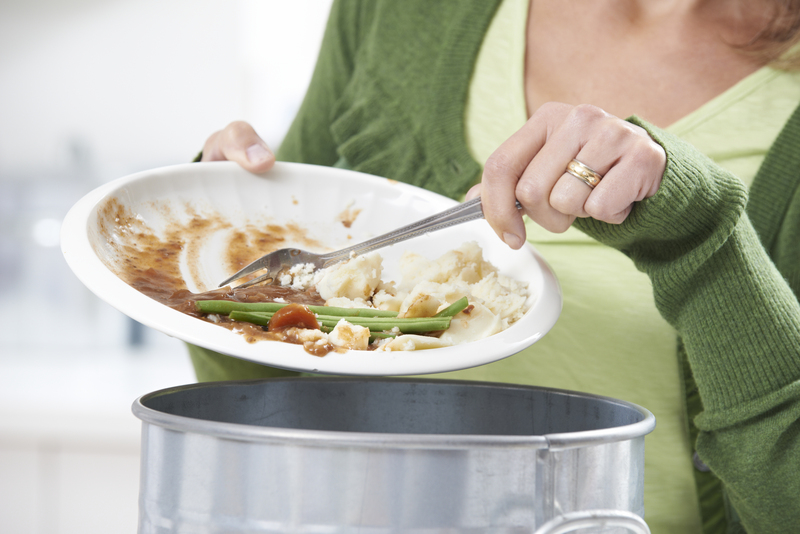How to Recycle or Reuse Bulky Waste Items for Extra Savings
Recycling and reusing bulky waste items is not only environmentally friendly but also a fantastic way to save money. Large household objects--like broken furniture, old appliances, and discarded mattresses--often end up in landfills, taking up significant space and creating ecological problems. However, with a bit of creativity and resourcefulness, these bulky waste items can be repurposed or recycled, allowing you to enjoy extra savings and minimize your environmental footprint. This comprehensive guide will show you how to recycle or reuse bulky waste items for maximum benefit, cover the benefits, offer actionable ideas, and help you locate services to assist in your efforts.
Understanding Bulky Waste: What Qualifies?
Before diving into the strategies to recycle or reuse bulky items, it's important to define what constitutes bulky waste. These are large household items that do not fit into standard waste bins and require special handling for disposal. Common examples include:
- Old furniture: Sofas, mattresses, wardrobes, dining tables, chairs.
- Large appliances: Refrigerators, washing machines, ovens, microwaves.
- Electronic waste: TVs, computers, stereos, printers.
- Outdoor items: Bicycles, exercise equipment, gardening tools, barbecues.
- Construction debris: Rugs, carpets, doors, windows, drywall.
Most cities provide special collection days or drop-off points for these items, but recycling or reusing them yourself offers both environmental and financial benefits.

Why Recycle or Reuse Bulky Waste Items?
You might wonder why you should go through the effort to recycle or repurpose these oversized waste items instead of simply arranging for pick-up. Here are several key reasons why it pays to take action:
- Save Money: Avoid disposal fees and even generate extra income.
- Environmental Impact: Reduce landfill waste and conserve resources.
- Support Your Community: Donate goods to charity, helping those in need.
- Creativity and DIY Benefits: Give items new life while learning valuable skills.
- Comply with Local Regulations: Some municipalities require bulky items be disposed of responsibly.
Extra Savings: Turn Waste into Value
By actively recycling and reusing bulky waste items, you unlock a treasure trove of benefits. Here are just a few ways you can experience extra savings:
- Avoid landfill fees that are common with municipal pickup services.
- Sell or donate items via online marketplaces for cash or tax deductions.
- Save on home decor by transforming old items into "new-to-you" furniture or art.
- Reduce costs associated with purchasing similar new items.
Let's explore practical approaches for how to recycle or reuse bulky waste items and maximize these benefits.
Smart Ways to Recycle Bulky Waste Items
Not every bulky item is destined for the dump. With proper planning and information, you can recycle many of these objects, ensuring valuable materials re-enter the production cycle. Here's how:
Furniture Recycling
- Check with your local recycling centers: Many have specific programs for wood, metal, or upholstered items.
- Scrap for parts: Metal frames, springs, and wood can often be separated and recycled independently.
- Responsible mattress disposal: Specialized recycling services exist for mattresses, which are made from a range of reusable materials like metal coils and foam.
Appliance Recycling
- Appliance stores and manufacturers: Many retailers will take back old appliances for recycling when you purchase a new one.
- Local programs: Municipalities often collect appliances (white goods) for eco-friendly disposal.
- Parts harvesting: Motors, electronic boards, and metals can be recycled separately.
Recycling Electronics--E-Waste Management
- Certified e-waste centers: Ensure old TVs, computers, and stereos are processed safely.
- Retail drop-off: National chains (such as Best Buy) frequently accept electronics for recycling.
- Charity donations: If still functioning, consider donating to local schools or charities.
Recycling Outdated Carpets, Rugs, and Other Building Materials
- Carpet recycling centers: Some companies process carpets, extracting fibers for future use.
- Construction recycling: Doors, windows, and even drywall can sometimes be recycled at construction material depots.
- Metal recyclers: Scrap metal yards will accept metal doors and frames.
You can search for certified recycling centers on websites like Earth911 or your municipality's waste management site for a list of local resources.
Creative Strategies to Reuse Bulky Waste Items
Not everything needs to be recycled; with a little ingenuity, many items can be repurposed to extend their life and save you money. Here are some practical ideas for bulky waste reuse:
Repurposing Old Furniture
- Sofas and Chairs: Reupholster for a fresh, modern look. Even if the upholstery is damaged, the frame can often be reused for DIY projects.
- Tables: Refinish or paint old wooden tables--turn a dining table into a rustic outdoor bench or a desk for your home office.
- Dressers: Revamp drawers to create storage bins or wall shelves. Broken dressers make great planters or toy storage with a little paint.
Reusing and Upcycling Appliances
- Washing machine drums: Transform into outdoor fire pits, planters, or compost bins.
- Refrigerator shells: With doors removed, old fridges become unique bookshelves or coolers for gatherings.
- Smaller appliances: Remove and repurpose parts for craft or workshop use.
Creative Uses for Mattress Parts
- Springs: Use as garden trellises or to hang holiday ornaments.
- Foam: Cut for use in pet beds or seat cushions.
- Fabric covering: Upcycle into cloth rags or quilt batting.
Turn Old Carpets and Rugs into Useful Household Items
- Pet mats: Cut worn rugs to size for use as mats under pet dishes or litter boxes.
- Garage flooring: Reuse old carpets as protective padding in workshops or garages.
- Outdoor mats: Repurpose for garden pathways or door mats.
DIY Projects with Construction Debris
- Doors: Use as tabletops, desks, or sturdy headboards--the possibilities are endless!
- Windows: Create unique picture frames, cold frames for gardens, or greenhouses.
- Wood scraps: Build raised garden beds, compost bins, or storage shelves.
For those who enjoy DIY and crafting, there are countless online tutorials that demonstrate how to give new life to bulky waste items. These projects can save you money, add value to your home, and provide a sense of accomplishment.
How to Sell or Donate Bulky Waste Items
If you don't have time or need for repurposing, selling or donating your unwanted bulky items is a win-win for both your wallet and the community. Here's how:
Selling Bulky Waste Items
- Online Marketplaces: List items on websites like Craigslist, Facebook Marketplace, OfferUp, or eBay. Even broken items may have value for parts or repair enthusiasts.
- Community Garage Sales: Combine your items in a group sale to attract more buyers and maximize your earnings.
- Specialist Buyers: Search for local scrap dealers, antique shops, or appliance repair services interested in your specific items.
Donating Bulky Waste Items
- Charity Thrift Stores: Organizations like Goodwill, Salvation Army, or Habitat for Humanity Restore may accept usable furniture, appliances, and building supplies.
- Local Shelters or Schools: Functional items can help low-income families, students, or shelter residents.
- Freecycle Networks: Join local free reuse groups (Freecycle.org) to give away items directly to those, who need them most.
*Always ensure donated items are in acceptable condition and review specific organization acceptance guidelines before donating.*
How to Properly Prepare Bulky Waste Items for Recycling, Reuse, or Sale
To get the most value and convenience from your recycling and reuse efforts, follow these preparation tips:
- Clean thoroughly: Remove dirt, stains, or odors to make items more attractive for sale or donation.
- Disassemble if needed: Breaking items into smaller parts may make them easier to transport or recycle.
- Check for hazardous materials: Remove batteries, fluids, or electronics from items before recycling.
- Document value: Take clear photos and honestly describe the condition for sale listings.
- Safety first: Use appropriate equipment and ask for help when moving large, heavy objects.
Finding Local Bulky Waste Recycling and Reuse Services
Many communities offer organizations, programs, or events to help you deal with bulky waste responsibly. Here are some resources to locate help:
- Municipal collection events: Periodic pick-up days or drop-off events.
- Retailer take-back programs: Appliance, electronics, and furniture stores may offer recycling or trade-in.
- Specialty recyclers: Dedicated centers for mattresses, e-waste, and metals (check your city directory or online).
- Nonprofit organizations: Many charities arrange pick-up of large donations.
- Online recycling directories: Earth911, RecycleNation, or the EPA's official site offer database searches by item and location.
Tips to Prevent Future Bulky Waste Accumulation
While it's great to recycle or reuse bulky items, reducing how much you generate in the first place is even better. Here are some prevention tips for long-term extra savings:
- Buy quality over quantity: Invest in durable goods designed for long life and repairability.
- Embrace the sharing economy: Borrow or rent rather than buy items you use infrequently.
- Maintain your belongings: Regular cleaning and repairs can keep items functional and extend their lifespan.
- Practice mindful consumption: Only purchase what you truly need to minimize clutter and waste.
- Research before disposal: Always check if an item can be recycled, reused, or donated before trashing it.

Frequently Asked Questions: How to Recycle or Reuse Bulky Waste Items
- Can I leave bulky waste on the curb for free pick-up? - Most cities limit curbside bulky waste collection or require scheduled pickups; check your local regulations first.
- What items are prohibited from recycling? - Hazardous materials like oil, certain electronics with lead, and contaminated furniture are usually prohibited.
- Are there fees for dropping off large waste items? - Fees vary by item and location; some centers accept certain items for free, while others charge per piece or weight.
- What should I do with unusable, unsafe, or damaged items? - If items can't be repaired, check for specialty disposal services to handle them safely rather than landfill.
Conclusion: Turning Bulky Waste into Extra Savings and Environmental Benefits
By recycling or reusing bulky waste items, you're not only being an eco-friendly citizen but also enjoying a range of valuable financial and personal benefits. Whether you sell, donate, upcycle, or recycle, each action contributes to the health of the planet and your wallet.
So, next time you're faced with an old sofa, an unwanted appliance, or any other oversized item, remember: recycling and reuse aren't just chores--they're opportunities for extra savings and positive community impact. With these tips and resources, you're equipped to handle bulky waste responsibly and creatively.
Make a difference--start today with your next bulky waste challenge!
